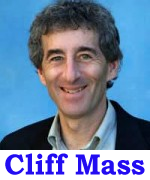from AAUP listserv. Matthew Weinstein, Professor of Science Education
I’m on the science-ed side of the house and only know the math education issues schematically. My colleague Julia Aguirre could much better speak to the math issue. First, let me say, I love Cliff’s blog and have appreciated his presence on Sher’s friday morning program. If I missed the show, I’d often get the podcast just to hear him. I also would defend his rights to wander a little bit, such is the nature of coversation. That said I do disagree with his mathematics stance, on which he relies far too much on the highly conservative and ideological Fordham Institute to justify his conclusions. I can’t speak for specific math ed curricula, but the approach that Cliff takes is a scientist/engineer’s approach to the topic which down plays actual understanding for quick use. This can be seen in his “pretest” on his blog site which he gives his students, which in no way measures whether his students actually understand mathematics, just whether they can mechanically apply the formulas appropriately. Likely they’ll be able to if they’ve taken the relevant math *recently*, if not it’s really trivia. If I had not been a math and physics teacher I’d have no reason to know what he thinks everyone should know.
The science side of “discover” is different than the math side. My feeling is that over 20 years our approaches have gotten more nuanced with more emphasis not on students somehow tripping over the laws of nature unguided, but, rather, having learned the laws of nature and methods of researc,h they should have the experience of deploying them so that they get a sense of the work of science, and what we love about it. In the best models of inquiry (IMHO), students have all but the smallest amount of wiggle room to “discover” anything, they’re applying the science to novel but very narrow problems based on developed protocols so that they can experience data gathering, analysis, and most critically (at least in the last 10 years) argumentation.

Matthew,
Until someone can convince me that the authors of the Discovery curriculum have some new expertise in how to teach, I want to know what expertise they have in what to teach.
Am I being impolite by asking how much math do you or the other proponents of the Discovery Curriculum actually use? How can educators decide HOW to teach if they, themselves, do not understand modern math
As a scientists, and a trained Skinnerian, I might accept your argument IF I saw evidence that the educators approaches to math were based in real science. I am, however, skeptical about the “research” going into today’s class room. About three years ago I read with horror a report the SPS paid “experts” to do of a Seattle program I am interested in. I read the report because the conclusions were frightening. The report itself, written by a national expert in education, was itself nonsense. Most of the data collection was anecdotal and the statistical methods used would have failed any introductory stats class. This piece of edcutional research was more a political statement than an objective report.
I recently reviewed another ed school document, a PhD thesis that had gotten some acclaim. Again, there instead of research, there was jargon and assertions of opinion.
Back to content, rather than modality, I am skeptical that math teachers today even know what math is. Math has changed hugely since the teachers writing these books went to school. Areas of math that are critical in the business and academic worlds .. logic, programming, statistics, economics did not exist when most educators were themselves educated. The higher level, hard stuff these teachers likely could not themselves learn in high school to learn .. geometry, analytical geometry, trig, and calculus still exist BUT today’s kids may have to learn equally hard stuff …graphic analysis, Boolean logic, probability .. thatd did not exist when these teacher-authors went to school.